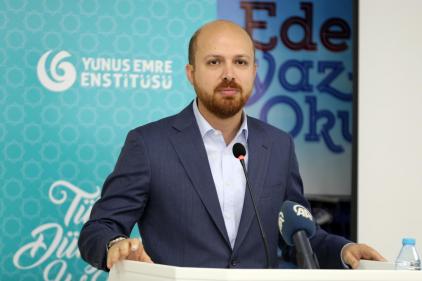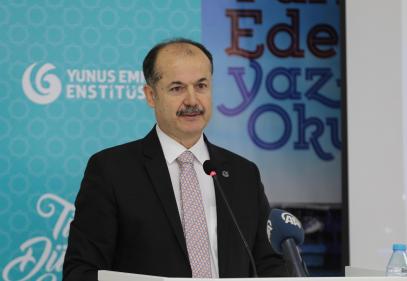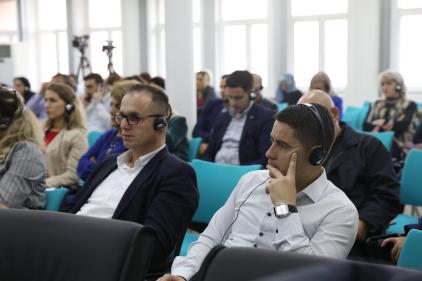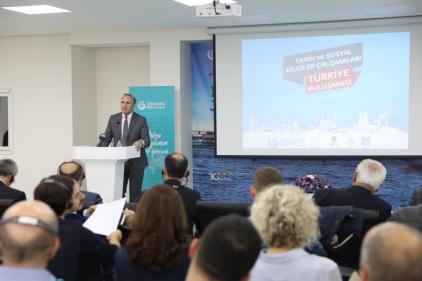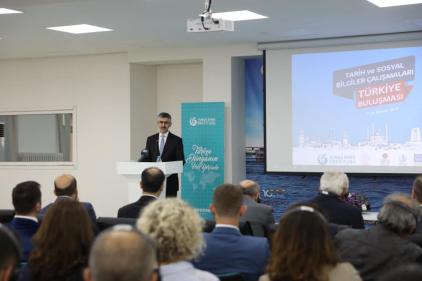"History and Social Studies Research Turkey Meeting"
The event entitled "History and Social Studies Research Turkey Meeting," jointly organized by Yunus Emre Institute and the Directorate General of Religious Education of the Ministry of National Education within the context of the cooperation between Turkey and Kosovo, has kicked off in Istanbul.
Information and cooperation meetings will be held and cultural, historical and social field visits will be made within the framework of the program to be carried out in four cities, namely Istanbul, Bursa, Balıkesir and Çanakkale, between November 17 and 24, 2019, with the attendance of 62 researchers working in the fields of social sciences, history and culture from Kosovo.
"The information on Turks has been given from the perspective of the Western media"
Delivering a keynote speech at the opening of the program, World Ethnosport Confederation President Bilal Erdoğan indicated that the media outlets used to shape the public opinion and the West enjoy a media power during the late periods of the Ottoman Empire. Erdoğan maintained that the information about Turks and Anatolian people had been conveyed to the world with the perspective of the Western media outlets. "Unfortunately, we live in an age in which it is easier to manipulate history. The primary mission of Yunus Emre Institute is to rectify the perception, image and history of Turkey, blemished by the Western media outlets, and ensure that sister nations or our former neighbors with which we have co-existed within the Ottoman Empire, start to nurture correct perceptions about the Ottoman Empire. The first way to do this is to help people learn Turkish. That is, to characterize Turkey's culture and people in the most accurate way," he said.
"Language training is one of our major pillars"
In his keynote speech, Yunus Emre Institute President Şeref Ateş drew attention to the fact that the Institute is marking the 10th anniversary of its establishment as well as to its goal of establishing humanitarian ties with all countries around the world, and stressed that language training and education is one of the pillars that can help to establish these ties.
Stressing that the number of those who learn Turkish as a foreign language is rapidly increasing thanks to the Institute's centers abroad and the Distance Turkish Teaching Portal, implemented by the Institute, Prof. Dr. Ateş noted that Turkish language is getting the attention it deserves. He pointed out that the Institute has implemented more than 1,000 cultural, academic and scientific events around the globe with a view to enhancing humanitarian bonds.
In his speech, Director General of Religious Education of the Ministry of National Education Nazif Yılmaz touched on the importance of the activities conducted with the goal of creating a common understanding through cooperation with friendly and sister countries within the context of the preservation of historical and cultural heritage.


